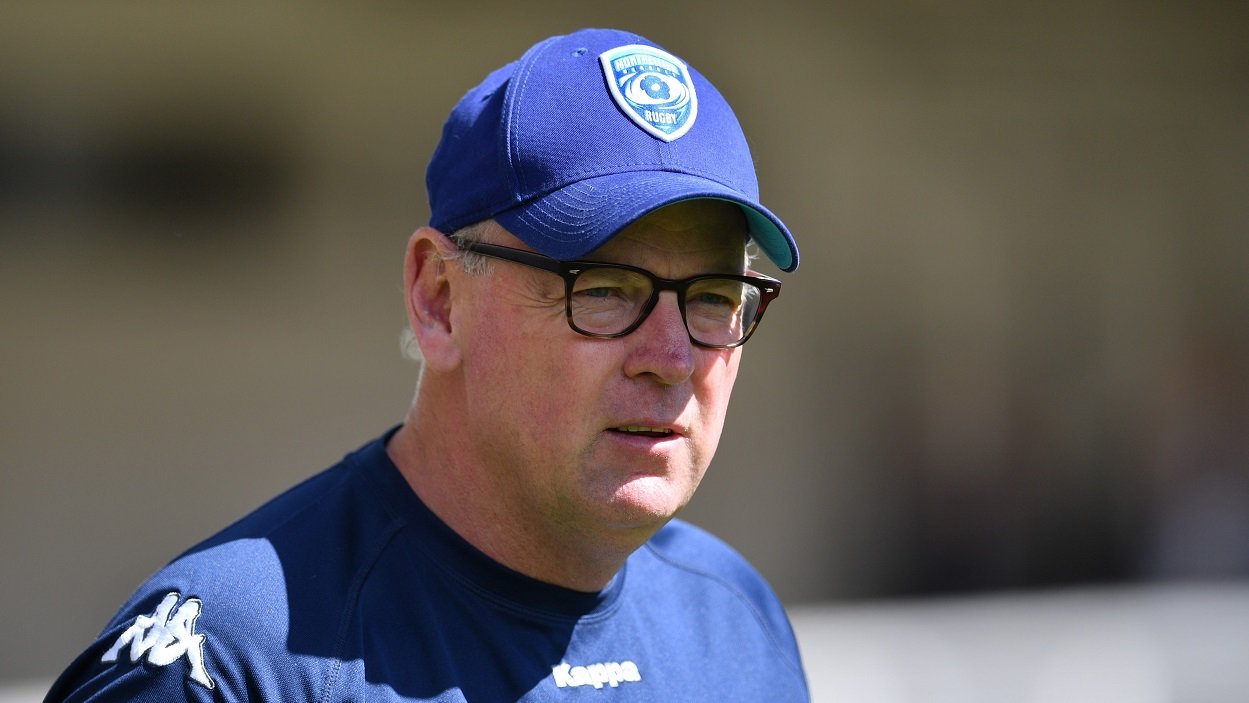There was something rotten in Jake White's Montpellier

French media reports have torn White’s coaching tenure to shreds. Big style
Few are mourning the end of the Jake White era at Montpellier, if a brutal interview in the French press is anything to go by.
Two days after Montpellier’s season ended in play-off defeat at home against Racing 92 (but, possibly, before the 2007 World Cup-winning coach cleared his desk), second-choice hooker Charles Geli let fly in twice-weekly rugby newspaper, Midi Olympique.
The 30-year-old Frenchman took indiscriminate-yet-damaging shots at everything from White’s man-management skills and coaching methods, to the attitudes of some of the players brought in during the South African’s two-and-a-half years in charge.
White and his staff, Geli said, were careless in their treatment of players. He told Midol (as the paper is known in France): “They told us that French players were bad, that we knew how to do nothing, and that they would have to explain everything to us.”
The ex-coach’s attitude towards his players – notably Fulgence Ouedraogo and François Trinh-Duc – has jarred with the French for some time. And the direct, brutal rugby White’s team played had fans running for the nearby soccer club.
Worse, he could barely even summon up the effort to learn the language – a lapse that is widely regarded as insulting. It is known that club president Mohed Altrad was far from impressed.
In the Midol interview, Geli touched on the language barrier, claiming that video sessions were conducted in English. And he spared little fury for some of the players White brought into the squad: “Guys who have been here for two years can barely speak two words of French. I should have gone to play abroad – I would have known then it was up to me to adapt.
“I had better relations with the fans than with some of the players I trained with every day.”
Geli, who had seen just 478 minutes of game time this season, and nothing in the past 10 weeks, was thrown into the heat of last weekend’s all-or-nothing play-off match when Bismarck du Plessis left the field for an HIA in the 25th minute and did not return.
He said: “I did what I could. You’re out of the reckoning and all of a sudden you’re told, ‘Go ahead, be the best’. That only happens in books.
“In my two seasons at Montpellier, my rugby has got worse, while my English has improved. That’s a shame because I had the opposite ambition.”
[rugbypass-ad-banner id=”1473306980″]
The bad PR from the Altrad did not stop at Geli’s interview. The day Midol hit the streets, the club announced it had released six players from their remaining contracts. Those suddenly and unexpectedly looking for new clubs included players’ union president Robins Tchale-Watchou, South African Pierre Spies, Fijian Akapusi Qera, and French trio Marvin O’Connor, Antoine Battut, and Joffrey Michel.
The 34-year-old Tchale-Watchou – who is on indefinite stand-down following repeated concussions – revealed the players, three of whom had featured in the play-off defeat against Racing, were told the news at an end-of-season barbecue for players and staff.
In an interview with Rugbyrama, he said: “This is the atmosphere at Montpellier. I often think of friends I know elsewhere and it’s another world of rugby. This is what we have to deal with. I’m more disgusted than anything else.”
His version of events, however, is disputed. Altrad reportedly said that Tchale-Watchou knew he was leaving for four months and had a job lined-up elsewhere.
The latest sextet takes the number of end-of-season departures from Montpellier to 16. Eleven of those leaving are non French-qualified players, as the club moves to clear space to comply with tightening league rules from next season.
Among the confirmed 10 arrivals for next season, seven are French qualified. And if Louis Picamoles does head to the Altrad in the summer, as French media continue to predict, eight out of 11 will be French. There is still time for more names to be added to the list.
At least incoming head coach Vern Cotter speaks French. That should please his predominantly French squad. But the barbecue massacre followed decisions he reportedly made about his playing staff next season. That probably will not please his squad.
Following the cull over the cutlets, however, chances are his preceding reputation is somewhat tarnished. Expectations had been so high. Now, many are just hoping that the new boss will be not quite like the old boss.
Sure, Jake White brought silverware – in the shape of the Challenge Cup. On his watch, Montpellier twice reached the end-of-season play-offs and qualified for the Champions Cup. But, his style alienated many fans who had loved previous coach Fabien Galthie’s sexy rugby.
It’s now also clear he broke the dressing room. He’ll no doubt argue it was necessary; that in creating Sharks-sur-Med, he gave the club a hard, winning edge it had previously lacked.
Unless Cotter works closed-season wonders, those two-and-a-half years of Jake White could end up doing the club more harm than good.















